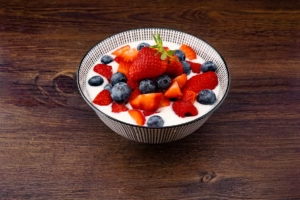The term “retinol” is probably something you’ve heard a lot if you’ve been experimenting in the skincare industry. Whether you’re scrolling through beauty TikTok or browsing the skincare aisle, retinol is swiftly becoming a household name—and for good reasons.
Retinol, once thought of as a dermatologist’s secret weapon, is now the mainstay of popular skincare products. However, what is retinol, why is it so popular, and how can you use it in your daily routine? Let’s learn about it in this blog post.
What Is Retinol?
Vitamin A is a powerful antioxidant known for its skin-renewing properties and retinol is derived from it. It belongs to a group of substances known as retinoids, which are frequently found in both prescriptive and over-the-counter skincare products. Retinol’s capacity to increase cell turnover, boost collagen synthesis, and gradually enhance skin tone and texture is what makes it so popular.

Uses and Benefits of Retinol:
Here are the key benefits that have helped solidify its reputation as a skincare essential:
1. Reduces Fine Lines and Wrinkles
Retinol boosts collagen production, which helps firm the skin and reduce the fine lines over time.
2. Fights Acne
It treats acne by unclogging the pores and reducing the inflammation.
3. Fades Dark Spots
Retinol decreases hyperpigmentation- whether from sunburn or post acne scars- thus evening out the skin tone.
4. Improves Skin Texture
Regular use promotes skin cell turnover, which can result in smoother, more radiant skin.
5. Minimizes Pores:
As it clears out pore-clogging debris, skin appears more refined and less congested.
How to Use Retinol :
Here are a few tips on how to use retinol effectively:
• Start Slow:
Start with a lower concentration (around 0.25% to 0.5%) and slowly build up. Use it 1–2 times a week in the beginning.
• Apply at Night:
It is best to add retinol in your nighttime routine as it breaks down in sunlight.
• Moisturize Generously:
Apply an ample amount of moisturizer after retinol to reduce potential dryness.
• SPF Is a Must:
Retinol can make your skin more sensitive to the sun. Always wear sunscreen during the day—no exceptions!
The Future of Retinol in Skincare:
New retinol treatments with excellent efficacy and little irritation are becoming available thanks to advancements in skincare technology. These consist of time-release formulations that gradually work throughout the night, encapsulated retinol, and retinaldehyde, retinol’s kinder cousin.
The growing demand from consumers for evidence-based skincare products means that retinol will continue to be a hero ingredient for many years to come. Including a retinol product in your routine could revolutionize your skin, regardless of your age.
Conclusion:
Retinol has evolved from a trendy term to a powerful, well-researched substance that is becoming more widely available and efficient. If you want to improve your skincare routine with apparent, long-lasting results, try retinol.










